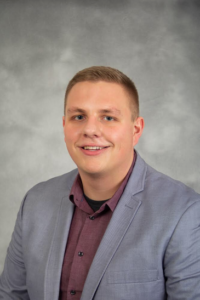1. Why did you choose to major in Geography?
I chose to major in geography almost immediately after taking Environment and Society which was my first class in the department. I really value the social-scientific, justice oriented approach that geography offers, and I was interested in learning more about human-environment interactions.
2. To what extent your geography education has already transformed how you view and act on the world?
I see geography show up in so many aspects of my life, especially in the way that it has trained me to think critically about big issues and identify next steps to begin addressing them at multiple scales. Geography has also transformed how I strive to exist in my relationships with others and the environment.
3. Beyond coursework, what other experiences have enriched your geography education?
In the past two years, I’ve had the opportunity to hold multiple summer jobs and internships, all connected to geography in some way. In summer 2019 I worked at Big Hill Farm and with Nicollet County Property Services as a GIS intern, and this past summer I worked with a non-profit based in Minneapolis called Youthprise which prioritizes youth-led projects to address issues of inequity in the community. Being a senior, I have also been thinking a lot about people I have met in this department, many of whom have become my best friends, and I am amazed at how much I’ve learned just by sharing space with peers. When I was reflecting more on this, I realized that I could list off multiple things that other senior geography majors and minors have taught me, both in and out of the classroom, and that is part of why I value these relationships and the department so much. Being surrounded by peers who are highly purposeful in their education and driven to make the world a better place has been such a gift, and I can’t wait to keep learning from them in the years to come.
4. What will make the world a better place and where do you see yourself in five years?
I think the act of paying reparations and ensuring truly equitable investment in our communities will make the world a better place. To me, this feels like a logical first step in building a world that values all people and emphasizes personal responsibility in how we show up for others. Overall, I think a shift from individualism towards a collectivist, community-oriented approach would be of great benefit because justice will become centered in how we create policy and exist together in space. Within geography, I’m particularly interested in thinking about how we can build more equitable food systems, so in five years, I see myself either in grad school or working for an organization that centers food justice and sustainable agriculture in their mission.
